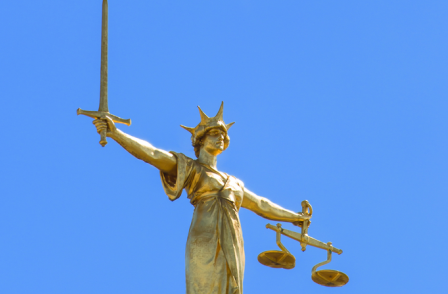
Journalists forced to keep silent for years because of the Contempt of Court Act have grasped the opportunity to speak out about their Operation Elveden ordeals.
A week ago nine journalists accused of paying public officials for stories were told the prosecutions against them were being scrapped. The decision from the Crown Prosecution Service came after the Court of Appeal quashed the conviction of former News of the World reporter Lucy Panton.
It turned out that police and prosecuters had severely under-estimated the seriousness of the alleged wrongdoing which was needed for a journalist to be convicted of misconduct in a public office by paying a public official for a story.
You can read the latest Elveden survivors' stories here:
- Sun reporter Tom Wells
- Former Sun managing editor Graham Dudman
- Sun reporter Vince Soodin
- Former News of the World reporter Lucy Panton
- Sun reporter Neil Millard and night news editor Brandon Malinsky
- And most recently, Sun reporter Stephen Moyes.
I was to give a character reference for Moyes, whose glittering career (pre-Elveden) I have chronicled with interest at Press Gazette.
The trial of course won't now go ahead, but here it is anyway:
Stephen Moyes character witness statement:
I have been editor of Press Gazette since December 2006 and worked for the title since 2003. It was around this time that I first came into contact with Stephen Moyes, when he was made David Beckham reporter for the Daily Mirror.
Since then I have followed his career with interest and spoken to him periodically about stories and to discuss the various awards he has won and his changes of role.
I can say that his character is fairly typical of the successful tabloid journalists I know: he is charming and personable and very polite. It is a misnomer that journalists are aggressive and abrupt. I can assure you the truth is quite the opposite.
Good manners, politeness and a smile get reporters much further when they are trying to get people to share their stories and it seems that these are very much among Stephen’s assets.
The extent to which he was a reporter very much at the top of his game is shown by the fact that he won the Press Awards scoop of the year prizes back to back. I don’t believe anyone else has done that before.
A Moyes story that particular sticks out is his 2011 undercover report about a couple selling an 11-month-old baby. It was a serious piece of public interest investigative journalism in anyone’s book.
His 2005 scoop of the year story revealed that supermodel Kate Moss was secretly taking cocaine.
It was a showbiz story that offered readers a glimpse behind the veil created by the PR teams of celebrities and told them what was really going on. In an age when celebs like Moss make millions from their image it is important that we know the truth about them. Otherwise the public must rely on a phoney press-release version of reality.
The story exposing John Prescott’s secret affair with a colleague in 2006 shed light on the personality of the then deputy prime minister. Of course the public has a right to know if he was deceiving his wife, because that might mean he was also deceiving voters.
For a journalist like Stephen Moyes the protection of sources is sacrosanct. If people cannot trust him to keep confidences then they will not come to him with stories.
Many sources risk their jobs by giving journalists’ stories.
For society as a whole the protection of journalists’ sources is essential. The Rotherham child abuse scandal, MPs’ expenses, even the News of the World hacking scandal. All these stories only came to light because of anonymous tipsters contacting journalists.
It saddens me to see journalists like Stephen Moyes dragged through the criminal justice system for doing their jobs because there but for the grace of God go I or many other journalists I know (if my career had taken me down a different path).
He did whatever he did not to line his own pockets but to get stories, to tell readers the truth about the world we live in.
It is a strange world where that activity is treated as a serious criminal offence.
Email pged@pressgazette.co.uk to point out mistakes, provide story tips or send in a letter for publication on our "Letters Page" blog

